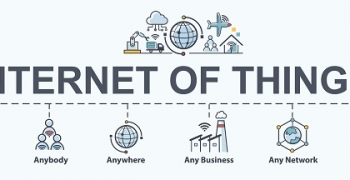As inter-connectivity and the rise of digital engineering redefines the world around us, the growing availability of data has come as a boon and a curse. This is especially true of the critically important utility industries.
While the rising tide of data holds immense potential in terms of new value creation opportunities, managing it effectively can become a complex and expensive affair, especially for utility majors burdened with legacy infrastructure.
Enter Edge Analytics, a transformative technology that is empowering utilities and revolutionizing infrastructure management. It is helping turn the tide, allowing utilities to leverage data collected from Edge and IoT infrastructure to bolster operational efficiency, in turn, enhancing service reliability. Unlike legacy analytics tools, edge analytics harnesses and distills data right where it is generated – at the edge. It is like having an intelligent assistant on your machinery, in your pipelines, at your remote sites — filtering, analyzing, and providing actionable insights.
Traditionally, organizations have relied on centralized data analytics – labeling and combining the data collected and applying the relevant investigative techniques on the consolidated data sets. However, this approach is no longer feasible given the increased volume and velocity of data collected by smart meters, bandwidth restraints, and regulatory issues.
Utilities can, instead, incorporate machine learning at the edge with deep learning and AI at the core. A distributed analytics model delivers a powerful continuous learning capability. From a security perspective, edge and IoT ecosystems require additional considerations due to the increased number of hardware and software-based network access points.
Edge Analytics offers a solution by removing massive amounts of traffic off networks and delivering insights and actions to connected devices located near the data creation point. This drives prompt and accurate decision-making in advanced automation, thus driving advances in Industrial IoT, manufacturing, and smart cities.
In the context of utility companies, smart electronics and sensor chips can help manage and monitor infrastructure usage in real time. In addition to smart devices, distributed analytics at the edge provides utilities with the ability to monitor electricity generation and consumption and manage demand. While bandwidth limitations can cause network latency and limit analysis of harvested data, edge intelligence enables companies to extract valuable insights on-site – where the data is collected, and transfer only the most relevant information for speedy insights to guide potential action.
With a distributed analytics architecture, utility businesses can monitor systems, assets, facilities, and the grid remotely. Suppliers can automate routine, repetitive tasks such as meter readings and inspections, thereby saving time and resources. Drones, cameras, and sensors monitor utility facilities, enabling proactive prevention and quick response to maintenance issues. The devices run algorithms and analyze data at the edge, monitoring the condition of assets to prioritize issues and reduce outage risk, in real-time. Additionally, organizations can use computer vision to inspect and monitor facilities, identify patterns, and detect anomalies. This allows for the communication of instantaneous safety hazard alerts. By analyzing data at the edge, companies can identify which assets are underutilized or overutilized, enabling them to optimize asset utilization and reduce costs. Utilities OEMs can also draw insights from the edge and IoT infrastructure to create new products and services that give customers flexibility, control, and affordable services. For example, the utilities industry is gradually moving to time-of-use (TOU) pricing, where the cost of electricity varies depending on customer usage patterns.
Edge Analytics is an unassuming force, quietly empowering utilities to be faster, smarter, and more efficient. While some challenges remain, particularly around cybersecurity and data regulation, the benefits evidently outweigh them. As per industry predictions, dependence on Edge AI (AI on edge computing) will jump from 5% to 50%. With the right strategy and technology, utility companies can mine this digital goldmine, paving the way to a future where reliable, efficient utilities services become the norm, rather than the exception.
In the end, the essence of the digital transformation brought about by Edge Analytics is simple - it is all about making our lives better. Let us embrace this smart revolution to empower our utilities and streamline infrastructure management paradigms for a more sustainable tomorrow.



